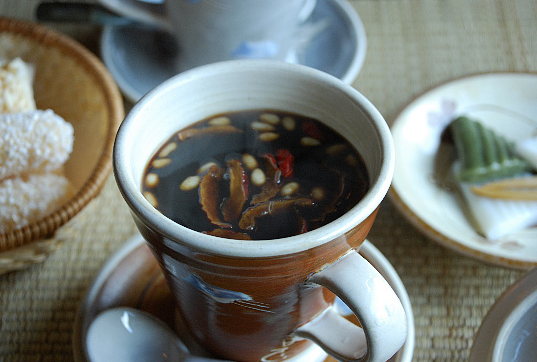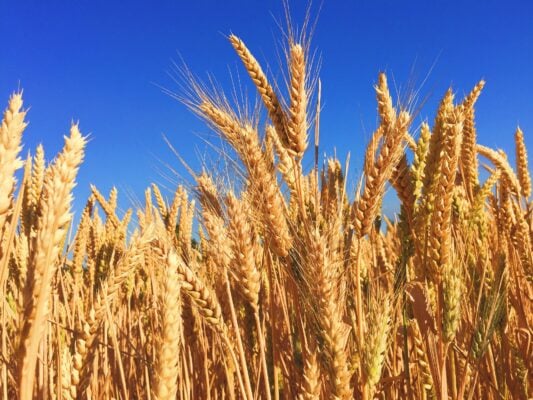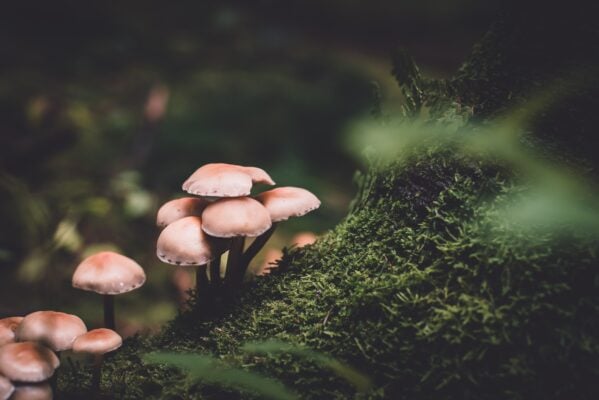Korea is quite well known for its tea culture, one that relies both on tea made from the Camellia sinensis plant, but also on many tisanes made from other leaves, flowers, fruits, grains and more, like its famous barley tea. Sshanghwa-chais one of these tisanes that has enjoyed enduring popularity in Korea, mostly due to its reputation as a medicinal elixir, and is starting to pique some interest globally.
So what is Ssangwa-tang? Well, it is a medicinal herbal tea made by boiling a number of medicinal herbs; White Woodland Peony root, Rehmannia root, Mongolian Milkvetch, Chinese Cinnamon bark, Korean Angelica root, Lovage root, Chinese liquorice. This creates a concoction with a deep brown color and a somewhat bitter taste. Sometimes Ssangwa-cha is served with egg yolk to offset the bitter taste and to add some nutritional value to the beverage. The beverage is available in many tea houses, supermarkets in RTD (Ready To Drink) form, and as an over-the-counter medicine in pharmacies across Korea. However, it is important to note that all these versions have (subtle) differences and characteristics based on their use.

‘Ssanghwa’ is roughly translated into “harmony of both energy and blood” or “the unity of Yin and Yang” and its cha (tea) has a long history of providing health benefits like combating fatigue, weakness, cold sweats and more. Ssanghwa-cha rose to prominence during the Joseon Dynasty (1392-1897) where it was administered by physicians for all kinds of ailments. It is said to have been enjoyed by the royal court both in the morning and in the evening, especially during winter as it does a great job heating up your body.
These days it is also said to boost your immunity, improve blood circulation, detoxify your liver and more and is considered one of the top health supplements to combat a cold or the flu. Ssangwha-tang therefore fits perfectly in today’s ever-more health-conscious society. However, it is wise to consult a doctor before the consumption of the more potent versions of Ssangwha-cha (Ssangwha-tang) because it can elicit some serious side-effects for people.



